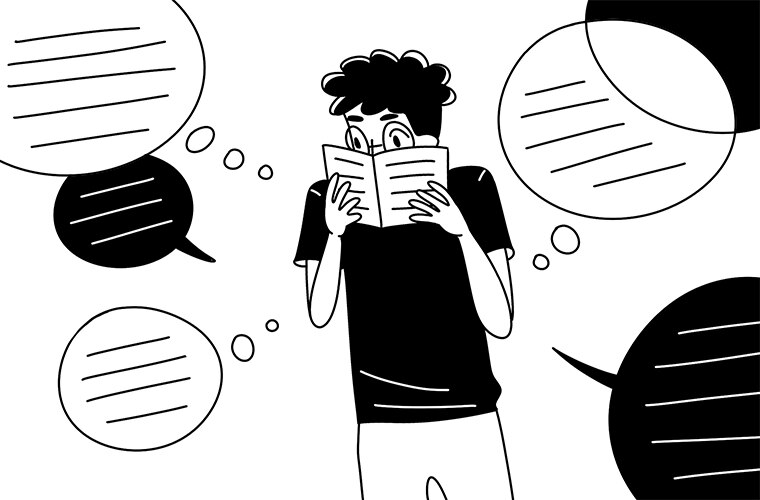此试题可能存在乱码情况,在查看时请点击右上角全屏查看
2018年梧州中考英语模拟试题
说明:1.本试卷共11页(试题卷8页,答题卷3页),满分120分,考试时间120分钟。
2.答卷前,请将准考证号、姓名写在答题卷密封线内,座位号写在答题卷密封
线外指定位置,答案写在答题卷相应的区域内,在试题卷上答题无效。
听力部分(30分)
(考试时间:20分钟)
做题时,可先将答案写在试题卷上。录音内容结束后,你将有时间把试题卷上的答案转写到答题卷上。
Ⅰ.听力理解(共30分)
一、听句子,选画面(每小题1分,共5分)
你将听到5个句子,请你根据所听到的内容,选择与画面内容意思相符的选项。每个句子仅读一遍。





A B C D E
1.______ 2.______ 3.______ 4.______ 5._____
二、情景反应(每小题1分,共5分)
你将听到5个句子,请你根据所听到的内容,选择恰当的答语。每个句子仅读一遍。
( )6. A. I’m fine. B. Sounds good. C. Yes, very well.
( )7. A. Because it is cooler there. B. You’re right. C. Yes, it is.
( )8. A. I don’t like the bank clerk. B. You can find the bank easily.
C. Go straight and turn left.
( )9. A. I like reading. B. The tennis match will start. C. I went to the park.
( )10. A. Not at all. B. Yes, please. C. You’re welcome.
三、对话理解(每小题1分,共10分)
你将听到10段小对话,请你根据所听到的对话内容及问题,选择正确的答案。每段对话读两遍。
( )11. A. A doctor. B. A student C. An artist.
( )12. A. Sunny. B. Rainy. C. Cloudy.
( )13. A. In a restaurant. B. In a classroom. C. C. In a post office.
( )14. A. Her dog is hurt. B. Her dog is lost. C. Her dog is ill.
( )15. A. See a movie. B. Do the homework. C. Do the housework.
( )16.A. On foot. B. By bike. C. By bus.
( )17. A. Pink. B. Blue C. Green.
( )18. A. Just-so-so. B. Great. C. Terrible.
( )19. A. The desk. B. The chair. C. The shelf.
( )20.A. Swimming. B. Basketball. C. Tennis.
四、短文理解(每小题2分,共10分)
你将听到一篇短文,请你根据录音内容选择最佳答案。短文读三遍。
( )21. Where is Mr. Green’s shop?
A. In a big city. B. In a small town. C. In a small city.
( )22. When did the thief begin to steal in Mr. Green’s shop?
A. Yesterday. B. Last week. C. Last month.
( )23. What were stolen in the shop first?
A. Clocks. B. Clothes. C. Watches.
( )24. What did Mr. Green buy?
A. A camera. B. A photo. C. Some cheap watches.
( )25. When did the thief come again?
A. A month later. B. Four weeks later. C. A nights later.
笔试部分(90分)
第一卷
Ⅱ.语言知识运用 (A)(共25分)
一、单项选择(每小题1分,共15分)
从各题所给的四个选项中选出最佳答案。
( )26.---Ann cut _______ on some broken glass.
---I am sorry to hear that.
A. she B. her C. hers D. herself
( )27. Could you lend me some paper? I have _______ all my paper.
A. used up B. given up C. picked up D. put up
( )28. Just now a reporter from a local newspaper______Peter and ask a lot of questions.
A. researched B. caught C. interviewed D. replied
( )29. _______ wonderful time they had at the party!
A. What a B. What C. How a D. How
( )30. Bill is from England and he is _______ honest boy.
A. a B. an C. the D. some
( )31. The lady ______ spoke to me in the shop used to live next door.
A. which B. whom C. that D. what
( )32. ---How long will the English teacher stay in this city?
---_______ two weeks.
A. For B. From C. Since D. In
( )33. You can make fewer mistakes in the math exam if you are _______ enough.
A. certain B. late C. careful D. thin
( )34. It took me two weeks _______ reading the novel written by my friend.
A. finish B. to finish C. finishes D. finishing
( )35. Don’t worry, I _______ the note to Helen as soon as she comes back.
A. will give B. gave C. would give D. give
( )36. Now all the students turn to page ______ and look at the ______ picture.
A. fifth, five B. fifth, fifth C. five, fifth D. five, five
( )37. It was such a funny show that people couldn’t help _______ again and again.
A. laugh B. to laugh C. laughing D. laughed
( )38. ---What did the teacher say just now?
---Sorry, I didn’t hear it. I ______ out of the window.
A. look B. looked C. am looking D. was looking
从每小题所给的选项中,选出与句子划线部分意思相同或相近的选项:
( )39. When she got to the cinema, the film had been on for five minutes.
A. reached B. left C. went to D. came to
( )40. Hurry up, or we'll be late for school.
A. Come up B. Be careful C. Be quick D. got up
二、完形填空(每小题1分,共10分)
阅读短文,从各题所给的四个选项中选出最佳答案。
We know that trees are useful in our everyday life. They 41 us many things, such as wood, rubber, medicine and many other things. They can 42 tell us a lot about our climate (气候). If you 43 a tree, you can see that it has many rings (年轮). Most trees get a new ring 44 year. Because of this reason, we know 45 a tree is. A tree over a hundred years old means that it has more than a hundred 46 . When the climate is dry or very cold, the trees do not grow very much and their rings are usually 47 .When it is wet and warm, the rings are much thicker. If the rings are suddenly(突然地) very thin or very thick, this means that the 48 changed suddenly. If we look at the rings on this tree, we can learn 49 the climate for a hundred years. And we can see 50 our climate is changing today.
( )41. A. tell B. ask C. offer D. get
( )42. A. not B. too C. to D. also
( )43. A. cut down B. climb up C. walk past D. look at
( )44. A. many B. every C. the first D. from
( )45. A. how big B. how long C. how old D. how much
( )46. A. trees B. leaves C. people D. rings
( )47. A. big B. thin C. large D. thick
( )48 A. climate B. trees C. things D. animal
( )49. A. about B. to C. with D. in
( )50. A. when B. where C. how D. while
Ⅲ.四、阅读理解(第51~60小题,每小题1分;第61~70小题,每小题2分,共30分)
A
A lift is wonderful. It is really only a small room. Rooms usually stay in one place. Lifts travel up and down all day long.
Sometimes a worker stands in the lift. He or she operates it up and down. In modern lifts there is no worker. The people walk in. They know what floor they want. They push a button and the lift goes to that floor. It is all very fast and easy.
Lifts are very important to us. Why? Think about a tall building. Maybe it has twenty floors. Maybe it has fifty or more. Who can walk up all the stairs? Maybe people can climb them one time. Can someone climb thirty floors to an office every day? Can small children walk up to their room on the twenty-fourth floor? Can their mother and father carry food up all those stairs? Of course not.
We can have high buildings because we have lifts. We could not have all the beautiful tall buildings in the world without lifts. They are really wonderful.
根据短文内容判断正误,正确的写“T”,错误的写“F”。(共5小题,每小题1分。)
( )51.A lift looks like a small stair.
( )52. A modern lift can go up and down with no worker in it.
( )53.If you want to go to the floor you want, please push the right button .
( )54. People have to use lifts because old people and children need them.
( )55. Without lifts, we could not have all the beautiful tall buildings in the world
B
阅读五段内容说明,从五幅图片中,选择符合描述的最佳选项。(共5小题,每小题1分。)



A B C


D E
56. Hi, I am Ann. I am sixteen years old. I live in a small town near Guilin. I don’t like any sports. I can’t play basketball or football. But I like music. I can play guitar. I can sing and dance. I often play guitar and sing songs for my friends’ birthday party.
57. Mary is my best friend. She is from England. She came to our school last year. Mary is a good student. She is very clever and can do everything very well. In the evening, we usually watch TV after finishing our homework. But Mary never watches TV, she always does some reading and writes something.
58. My aunt Alice works in a factory. She works very hard. She goes to work by bus at about 6:30. She has lunch in the factory and can’t go home at noon. At 5:30, it is time for her to leave the factory. She is very tired in the evening, so she always watches TV after supper.
59. Lana is my cousin. She is 24, and she has worked in the hospital for two years. She is very busy, so she often has to eat in the hospital. But she thinks the food there smells quite bad. She always do the cooking when she is free. She cooks very well. I like the food she cooks.
60. There is a small island in the river near our school. Our teachers often tell us that something dangerous is there, and ask us not to go there. But this Sunday, my elder brother and his friends will borrow Uncle Sam’s boat and go to the island to have a look. Of course, I will go with them. I am sure I will see many exciting things there.
56. 57. 58. 59. 60.
C
阅读短文,把方框中的五个句子分别放回到文中正确的位置上,以恢复文章的原貌。(共5小题,每小题2分。)
Everything has a name. All people, 61 For example, Jenny is the name of a student from England. 62 Cities and towns have names, too. Schools and office buildings also have names. All things have names. For example, tomato, 63 Apple, orange and banana are names of fruits. Names are important.
We use names every day. 64 we usually ask: "What's your name?" It's important to learn a person's name. Most people have two names. Some people have more names. Names are different all over the world. In Jenny's class, Jenny must learn the names of students from all over the world. 65
 A. When we meet a new person,
A. When we meet a new person,
B. potato and bean are names of vegetable.
C. This is very difficult because the names are different.
D. places, and things have names.
E. England is the name of her country.
D
阅读短文,从各题所给的选项中,选择最佳选项。(共5小题,每小题2分。)
David had a friend. He lived in a quiet place in the country. One day he invited (邀请) David to go out and stay with him for a week. When David got to the house, he wanted to open his suitcase(箱子)and take out his things, but suddenly he found he had no key. “How foolish I am! Now I must go back to the city to get the key!” he said.
“No,” his friend said. “I'll call someone to help us open the suitcase. But next time, don't forget your key!” So the problem was solved (解决) and David had a good time there. Some time later, when David came to see his friend again, he remembered the key. On his way to his friend's house, he thought, “This time he will know that I don't always forget things!”
When his friend met him at the door, David said, “You see, I've brought the key.”
“And where is your suitcase?” the friend asked.
David had no suitcase in his hand.
( )66. David lived .
A. in the city B. in the zoo C. in the forest D. in the park
( )67. David brought a with him when he got there for the first time.
A. bed B. bag C. key D. suitcase
( )68. David's friend asked .
A. him to go back to get the key B. a man to break the suitcase
C. somebody to open the suitcase for him D. him to break the suitcase
( )69. The second time David went to visit his friend with .
A. his suitcase B. his key C. everything D. his money
( )70. David
A. had a good memory B. was not a careful man
C. was a careful man D. left his friend happily
第二卷
五、综合填空。阅读短文,从方框中选择单词,并用其适当形式填空,使短文意思完整、通顺。(共10小题,每小题1分。)
![]()
Think, sell, no, many, too, old, understand, future, everyday, use
Computers are very important to modern life. Many people think that in the 71 computer will be used in lots of 72 life. It is 73 that we won’t have to do shopping because we will be able to get most things which are 74 in shops on the Internet. There will be 75 more books because we will be able to get all texts from computes. The Internet will be 76 to play games, see films and buy food. 77 telephone calls will be made by computer, 78 .
Some people are glad about these new ways of shopping and communicating, others don’t 79 that computers will replace our 80 ways.
Ⅳ.六、情景交际。(共10小题,每小题1分。)
根据对话内容,在空白处填上适当的词,使对话完整与正确。
A: What were you doing __81__ I called you at 8 last night?
B: I 82 listening to Rambo’s songs.
A: Who is Rambo?
B: Are you kidding? He is a great 83 .
A: Tell 84 more about him.
B: Rambo is 85 Canada. He likes singing. And he is good 86 playing the guitar. In 2012 he took part in The Voice of Canada and 87 first prize.
A: Really? Is 88 a student or …..?
B: He is a college student.
A: 89 do you think of him?
B: I think he is great! He has a pleasant singing voice. 90 performance in The Voice of Canada was amazing.
Ⅶ.书面表达(共15分。)
根据下面所给的关于李雷的个人小档案,以“我的好朋友”为题,写一篇小短文,介绍李雷同学的基本情况。
要求:1.所写短文必须要包括下表中的内容,请围绕Peter的“性格”方面的内容,适当扩展,增加细节,使意思更通顺、连贯。
2.字数为80字左右。
英文名 | Peter | 中文名 | 李雷 | 国籍 | 美国 |
性别 | 男 | 年龄 | 16 | 学校 | 洛基山学校(Rocky Mountain School ) |
年级 | 九 | 班级 | 八 | 职务 | 班长 |
特长 | 数学 音乐 体育 | ||||
爱好 | 唱歌 打篮球 电脑 | ||||
性格 | 乐于助人 友好 谦虚 | ||||
2018年梧州中考英语模拟试题参考答案
听力部分(30分)
Ⅰ.听力理解(共30分)
一、听句子,选画面(每小题1分,共5分)
1---5 BDAEC
二、情景反应(每小题1分,共5分)
6---10 CACBA
三、对话理解(每小题1分,共10分)
11---20 BCABC BABCA
四、短文理解(每小题2分,共10分)
21---25 BCCAB
笔试部分(90分)
第一卷
Ⅱ.语言知识运用 (A)(共25分)
一、单项选择(每小题1分,共15分)
从各题所给的四个选项中选出最佳答案。
26---40 DACAB CACBA CCDAC
二、完形填空(每小题1分,共10分)
阅读短文,从各题所给的四个选项中选出最佳答案。
41---50 CDABC DBAAC
Ⅲ.四、阅读理解(第61~70小题,每小题1分;第71~75小题,每小题2分,共30分)
A. 根据短文内容判断正误,正确的写“T”,错误的写“F”。(共5小题,每小题1分。)
51---55 FTTFT
B. 阅读五段内容说明,从五幅图片中,选择符合描述的最佳选项。(共5小题,每小题1分。
56---60 BADEC
C. 阅读短文,把方框中的五个句子分别放回到文中正确的位置上,以恢复文章的原貌。(共5小题,每小题2分。)
61---65 DEBAC
D.阅读短文,从各题所给的选项中,选择最佳选项。(共5小题,每小题2分。)
66---70 ADCBB
第二卷
五、综合填空。阅读短文,从方框中选择单词,并用其适当形式填空,使短文意思完整、通顺。 (共10小题,每小题1分。)
71.future 72.everyday 73.thought 74.sold 75.no 76.used 77.Many 78.too
79.understand 80.old
Ⅳ.六、情景交际。(共10小题,每小题1分。)
根据对话内容,在空白处填上适当的词,使对话完整与正确。
81.when 82.was 83.singer 84.me 85.from 86.at 87.won 88.he 89.What 90.His
Ⅶ.书面表达(共15分。)
答案略
、评分原则和说明
1. 书面表达总分为15分,按4个档次给分。
2. 评分时,先根据文章的内容和语言初步确定其所属档次,然后以该档次的要求来衡量,确定或调整档次,再作评分。
3. 评分时,应注意的主要内容为:内容要点、应用词汇和语法结构的数量和准确性、上下文的连贯性及语言的得体性,紧扣主题的适当发挥不扣分。
4. 如书写较差,以至影响行文与阅读,可将分数降低一个档次。
二、各档次的给分范围和要求
第四档(很好,12-15分):覆盖所有内容要点,并适当展开,语言无误或基本无误, 行文连贯, 表达清楚,具备较强的语言运用能力,完全达到预期的写作目的。
第三档(好,8—11分):基本能写出全部内容要点,有少量语言错误, 应用的语法结构和词汇能满足任务的要求,行文较连贯, 表达较清楚,达到预期的写作目的。
第二档(一般,4—7分):能写出大部分内容要点,有一些语言错误, 影响对写作内容的理解,行文不够连贯, 但表达基本清楚,基本达到预期的写作目的。
第一档(差,1—3分):只写出部分要点或与内容有关的一些单词, 语言错误较多,影响意思表达,信息未能清楚地传达给读者。
0分 未能传达给读者任何信息: 内容太少,所写的内容均与所要求内容无关或所写内容无法看清,无法评判。
英语试题卷 第 1 页 共 8 页

孔乙己是贫困潦倒的知识分子。在书中,孔乙己是一个知识分子,满口“之乎者也”,但是他很穷,还窃书,说过“读书人的事,怎么能叫窃,”被人嘲笑,他...

自然界产生氧气的化学方程式:光合作用的反应式为6CO2+12H2O→C6H12O6+6O2+6H2O。包括光反应和暗反应两个过程。需要具备光...

有的高校没有条件,只要学业水平成绩都合格就可以,比如中国科学院大学。有的需要平常学习考试成绩,比如北京外国语大学要求高三第一学期期末成绩在全...

在四则运算中,表示计算顺序,在小括号之后、大括号之前;表示两个整数的最小公倍数;表示取未知数的整数部分;在函数中,表示函数的闭区间;在线性代...

济南开设的最好的职高学校有:济南方信集团职业高中、济南公共交通职业高中。济南市公共交通职业高级中学是由济南市公共交通总公司承办,业务属济南市...

实然:是说事物实际上就是这样的,但不同于现实性(现实性指其有合理性和客观性);应然:就是应该是怎么样的意思,比如说这件事,就应该是那样的结果...

地中海气候一种夏季炎热干燥、冬季温和多雨,雨热不同期的气候类型。地中海气候冬季受西风带控制,锋面气旋频繁活动,气候温和,最冷月的气温在4-1...

碱石灰,又称钠石灰,碱石灰是白色或米黄色粉末,疏松多孔,是氧化钙(CaO,大约75%),水(H₂O,大约20%),氢氧化钠(NaOH,大约3...